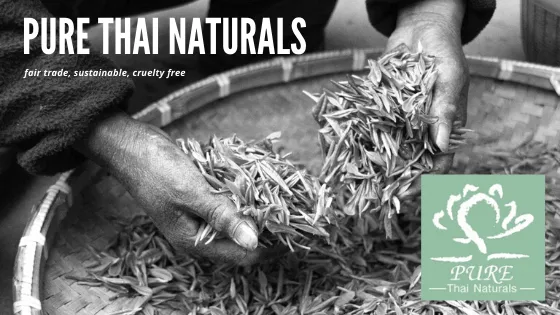We're raised with so much misinformation from the mainstream medical narrative that it's sometimes not easy to find your own naturally healthy way forward.
Sorry - and I know this is eeeew - but we NEED to talk about vegans and tapeworms. Why? That will become evident a little further down, based on a shocking piece of research I read today.
The myths.
- Myth 1. You get tapeworms from only animal products;
- Myth 2. You mostly get tapeworms only from your pets;
- Myth 3. Only dirty humans get tapeworms;
- Myth 4. Vegans and vegetarians never have to worry about getting tapeworms from their food;
- Myth 5. Tapeworms are pretty uncomfortable and annoying but they're relatively harmless;
- Myth 6. Tapeworms can only be treated with industrial chemicals which also destroy your microbiome.
The reality:
It's ridiculously easy to get tapeworms from organic produce that is grown outside the Big Corporate Farming system. (yes, promise to expand on this shortly). Yes, you CAN get tapeworm infestation from your dog or cat, or from poorly cooked animal produce (particularly fish and pork), but you are as likely to get it from home grown or organic farmer's market salad vegetables. Many people have tapeworm infestation and really aren't aware - the symptoms look like many other things and tend to be low grade and chronic, rather than acute. That does not in any way make tapeworms something to be ignored - they are dangerous!! There ARE several effective, natural remedies that you can use regularly for prevention, as well as for treating an acute tapeworm infection - it is not obligatory to succumb to Big Pharma's microbiome-destroying chemical biocides.
So, what took me down the vegan tapeworm trail this steamy, rainy season Friday afternoon in Thailand?
This.
A study of Thai market vegetables usually eaten raw suggests that consumers should not only wash the vegetables in chemicals but wear rubber gloves when handling them. The Parasitic Disease Research Center of Suranee University said on Facebook that more than a third (35.1%) of a sample size of vegetables contained tapeworm (eggs). Source.
The most commonly affected (and also commonly consumed raw vegetables) were: parsley, coriander, basil, spring onions and lettuce. But the worst offender was celery. Nineteen out of 30 samples contained tapeworm or 63.3%. Source.

My first thought was... Asia. Thailand. Low standards. Urgh. Or something along those lines.
But curiosity got the better of me. And so I consulted the Search Godesses over a coffee and was surprised by what I found.
Tapeworms are also very commonly spread through contaminated soil - namely soil that has had animal manure added. Chicken, pig, cow, horse, buffalo (hey, in Thailand that's the most common! 🤣) manures are all likely to contain tapeworm. As is water on small farms, where rainfall runoff between property used for animal husbandry and growing vegetables is common.
"It's good for the garden" takes on a slightly different slant.
Produce which is sold at farmers markets IS often watered from storage dams on-farm, where run off from animal waste is not unusual.
As the Thai study showed today, 35.1% of the vegetable sample studied carried tapeworm eggs.
Surely I'm talking undeveloped Asia only?
This 2014 study examined tapeworm prevalence in the general US population:
There are few data on the prevalence of taeniasis, or adult tapeworm infection, in the United States. However, persons with taeniasis are the source of autochthonous transmission of cysticercosis. The two published population-based studies of taeniasis suggest that the prevalence may be 0.5–3% in select populations. Data on the seroprevalence of cysticercosis in the United States are also limited. A small serosurvey in California, which examined a mixture of migrants and local residents, reported an overall seroprevalence by EITB of 1.8%, with a seroprevalence of 2.0% in migrants and 1.7% in residents. A serosurvey of members of an Orthodox Jewish Community in New York City that was performed in 1992–1993 in response to an earlier outbreak found a seroprevalence of 1.3% by EITB. Source
Hmmm... orthodox jewish population = no pigs and STILL showed a seroprevalence of 1.3% in residents in urban New York.
What really shocked me though, was that there is a distinct and proven causal relationship between tapeworm infestation and epilepsy.
Neurocysticercosis (tapeworms eggs-cysts in the brain) is the most frequent preventable cause of epilepsy worldwide, and is estimated to cause 30% of all epilepsy cases in in countries where the parasite is endemic. In specific communities the association between neurocysticercosis and epilepsy can be up to 70%. Source.
In Asia among meat-fish eating and Thai friends, parasite infestation is EXPECTED. We have Thai friends who give their children parasite meds every single month.
My two meat-eating friends in Thailand today showed a typical response to my sharing of the Thai tapeworm study data:

What do deworming pills do? Put heavy biocides into your gut and destroy your microbiome, which in turn destroys immune response, reduces seratonin production, damages sleep and mood and concentration, and impairs digestive capacity, among many other things.
What's troubling to me is that vegan people in particular have usually assumed intestinal parasites (and tapeworms in particular) are related only to ingesting animal products, and therefore there is no level of caution, and no regular self treatment plan. It just doesn't enter their thinking.
And today's study shows just how wrong that thinking is.
There ARE natural medicine treatments for intestinal parasites which are safe, vegan, effective, don't damage your microbiome and which should be a part of your regular diet - whether you eat huge organic salads from the farmers market, put your hands in dirt which has been treated with animal manure, handle your own chickens or their poop, or whether you catch your own fish, or eat meat products.

Garlic and Ginger. Both garlic and ginger should be part of your clean, anti-parasitic diet. Raw is much, much better.
Crushed papaya seeds are the biz to get rid of intestinal parasites. Make sure you add a tablespoon of them regularly to your fruit smoothie, or just crunch-munch on them when you enjoy a ripe papaya. Weekly is good.
Green pumpkin seed kernels. We chomp on these little yummies several times a week as a go-to snack. Tasty, high nutrition, and anti-parasite too? There's a REASON these are so easy to buy in every 7-11 all over Thailand. Just make them a habit.
Neem leaf extract. Bitter as hell - probably best slugged down as a capsule. Superbly effective. Neem leaf tea is good too, if you can stomach it.
Siebar: it's an ancient Ayurvedic tradition to eat young neem leaves, first thing in the morning, every day during the month of April. It's a deep systemic cleansing after the dry season as the neem trees begin to shoot; a full body detox and also a superb dose of anti-parasite medicine at the beginning of the rainy season.
Important to note that parasites (and tapeworm eggs) can also be easily transmitted by mosquito bites.
So now that you realize tapeworms are NOT a meat eating animal issue only, what exactly are the symptoms to be aware of?
- Nausea
- Weakness
- Loss of appetite
- Abdominal pain
- Diarrhea
- Dizziness
- Salt craving
- Weight loss and inadequate absorption of nutrients from food
If you're an organic veggie grower, your manure should never be used fresh and always composted hot enough to destroy parasite eggs and pathogens. If you like to garden, be mindful of really washing your hands and being aware of animal manure contact. If you're a vegetarian or vegan, be mindful about how well your veggies are washed, particularly if you buy from markets where vegetables are not commercially grown (ie checked-inspected for parasite infestation).
If you're a cook?? Wash your hands after the shopping and WASH all your produce when you get it home. We plonk it all in a sodium bicarbonate solution (1 tablespoon to a big basin of cold water) and soak everything for a minimum of 20 mins. Then rinse, and allow it to drip dry-ish before storing in the fridge.
Make sure you regularly consume anti-parasitic natural medicines, because MOST people carry some level of intestinal parasites. Tapeworms? no thanks.
An amusing Thai story to close:
About 5 years ago, my daughter and I headed to Pai in the northern mountains to celebrate Mother's Day and her birthday, which fall on the same day. The Pai River was in full flood (it being August and full on rainy season) and so we took some dramatic photos and found a cafe for lunch. I stupidly had a vegan salad whilst Poi had fried rice with meat. Who got the typhoid?? LOL. I did. The doctor's comment? "Didn't you know better than ordering a salad in rainy season after all these years?"
Being informed is good. I'm stunned at today's vegetable research results. Really! Using natural medicines for prevention makes the best sense of all.
Last fun fact? Young neem leaves are always served with certain Thai fish curries - the same fish which carry parasites and tapeworms. Cos they just know.
And now you do too.

Get Your FREE Hive Account

Visit our online store here

Join The Best Natural Health Community on Hive
